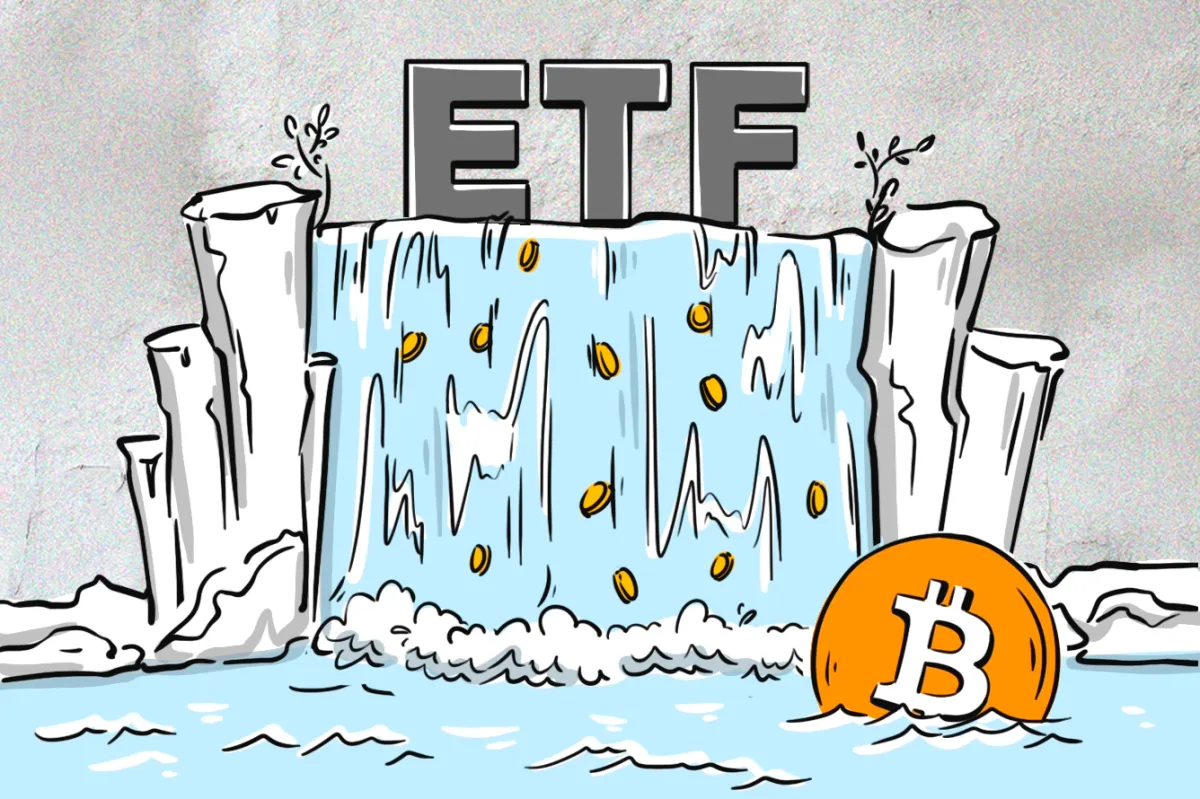
April’s Bitcoin halving emerged as one of the most eagerly awaited events of the year. However, contrary to expectations, it seems to have triggered a “sell the news” reaction among many investors, leading to Bitcoin’s price remaining below the $60k mark. This situation is further underscored by significant withdrawals from Bitcoin Exchange Traded Funds (ETFs).
Since their inception, these ETFs have attracted approximately 208,795 BTC in new funds, valued at over $12 billion. The total assets managed in spot Bitcoin ETFs are currently around 827,982 BTC, or more than $48 billion, accounting for about 4.22% of the total BTC supply available.
Despite a strong first quarter with record daily inflows for spot Bitcoin ETFs, the months of April and May have seen a pronounced trend of more outflows than inflows. In fact, a record outflow was recorded just yesterday, with nine other Bitcoin ETFs experiencing a combined $526.8 million in outflows.
Interestingly, the peak in ETF holdings was achieved on April 13, with 843k Bitcoins held in exchange-traded funds, which is about 16k more than the current holdings.
A significant contributor to this volatility has been the Grayscale Bitcoin ETF ( ), which has seen continuous withdrawals despite converting to a spot ETF product. Since January 1st, GBTC’s market share has dropped from over 90% to 35%.
However, GBTC still maintains the largest market share among ETF investors. Nonetheless, it might soon be overtaken by the iShares Bitcoin Trust (IBIT) from BlackRock, which currently holds around 274k Bitcoin and is one of the strongest-performing ETFs in the sector.
Overall, US ETFs have shown significant success, unlike the recently launched ETFs from Asia.
The newly launched Hong Kong Spot Bitcoin and Ethereum ETFs had a less-than-stellar debut, amassing only $12 million in trading volume on the first day. A key issue is whether Chinese residents from mainland China are permitted to invest in these ETFs. For right now, the answer is no, potentially limiting the growth potential of these funds.
Looking ahead, Australia is on the brink of entering the ETF arena. ASX Ltd., handling the vast majority of the country’s equity trading, is anticipated to approve its first spot-Bitcoin ETFs by the end of 2024.
Other major economies are expected to follow suit, which could further encourage institutional investment in Bitcoin and other cryptocurrencies, bolstering global demand.

